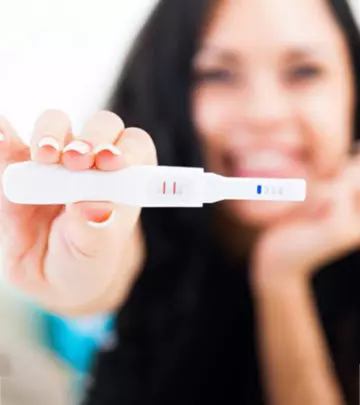
Image: Shutterstock
A recent study by a group of scientists explored the possibility of encouraging pregnancy tests for women who are at a reproductive age, before they undergo any surgery. The tests would help minimize any subsequent side effects of operational procedure, and mitigate the ill effects on both the woman and her unborn baby.
The American Society for Reproductive Medicine (ASRM) speculates that 20-35 years is the ideal reproductive age. And, the increased incidence of unreported or undiagnosed pregnancies in women has given rise to many laws regarding such situations.
Anesthetists Dr. Subhamay Ghosh and Dr. Gokulnath Rajendran conducted the study in the UK. Both believe that pregnancy testing should be made mandatory for any woman (of reproductive age) before she undergoes a surgical procedure.
Anesthesia and unidentified pregnancy could endanger the woman and her fetus. In some cases, intraoperative imaging scans (imaging through an MRI scanner) can help rule out such possibilities, or detect the presence of a pregnancy.
The American Society of Anesthesiologists’ Preanesthesia Task Force allows hospitals in the US to implement their own rules and have their procedures regarding preoperative pregnancy (POP) testing in women who are at a reproductive age. The UK takes on a different perspective. Here, women who feel that they might be pregnant can choose to opt for a POP test, but it is recommended that they undergo the test in any case (if they are of a reproductive age).
While the rate of POP discovery cases in women lies between 0.34% and 2.4%, better be safe than sorry is the only bit of advice we can think of right now.
The data from the study logged details of 511 women, of whom five women believed that they could’ve been pregnant, and around 21 women were unsure if they were. Nearly 100 tested negative for a pregnancy, while 125 avoided taking the test for reasons like recent menstruation, denial, hysterectomy, or lack of sexual activity.
Dr Ghosh said: “Detecting unknown pregnancy could provide an opportunity to discuss and cancel elective surgery or alter perioperative management. This simple but significant test could potentially provide a better and safer service across hospitals globally, to both the mother and the baby.”
What are your thoughts on preoperative pregnancy testing? We welcome your comments below.












